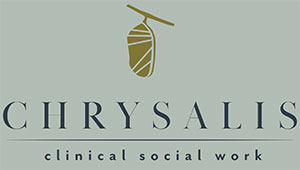Pregnancy, Prenatal, & Postpartum
Counseling and Therapy for Women
“Being a mother is learning about strengths you didn’t know you had.”
— Linda Wooten
Why I Do What I Do…
I have a passion for working with women in their child-bearing years and all the unique challenges they face.
As a doula, I found my calling connecting with and helping women through the prenatal, labor and delivery, and postpartum process. In the course of my five years working as a professional labor assistant, I attended almost 200 births. I want to use that experience to enhance the connection and help I can provide to my therapy clients. labor and I wish to apply the parallels between that and clinical therapy to help as many people—especially women—as possible. During pregnancy and birth, I helped women realize what kind of childbirth they wanted.
It’s so important to understand that new and expectant mothers go through some big changes—physically, psychologically, and emotionally. Having unexpected feelings, or struggling through certain aspects of pregnancy, birth and motherhood are not at all uncommon.
Working Through Common Maternal Challenges
The best way to navigate maternal challenges is with professional support from a counselor who has experience working with women of child-bearing age. Together, we will create an environment where you can freely express how you feel. Then, you can integrate new skills to make your time carrying and caring for your child happier and more fulfilling.
We can reconstruct trauma narratives so you can acknowledge your past without allowing it to negatively affect your experience. If you’re not feeling good about your pregnancy, or not bonding with your baby the way you’d like, we will work together to repair that fragile attachment. I will teach you to challenge flawed thinking and activate your hidden strengths to be the best mom you can be.
Therapy can help pregnant, first-time, and experienced moms who may be facing any of the following:
Prenatal Period
- Sometimes people fall out of love, and when it happens during pregnancy, it can be especially upsetting. Maybe you’re pregnant while navigating a separation or divorce. Maybe he’s decided he doesn’t want to have a baby. Perhaps the two of you were never that close or you feel trapped.
- When you’re pregnant, a rush of new hormone levels are coursing through your body. You might feel different than you ever have before. You may not even recognize yourself.
- If you’ve lost a pregnancy in the past, that can haunt you—particularly during your current pregnancy. You may worry or feel terrified. Bad dreams might make it hard to rest.
Perinatal Period
- Attachment to your child begins long before birth and can range from feelings of love and security to anxiety, avoidance and even fear. Maybe you find yourself thinking things like I’m just not feeling this.
- A high-risk pregnancy can result in worry, anxiety, depression and more.
- If you were a victim of past sexual abuse, pregnancy has the potential to bring up memories of that assault. Even if there’s nothing specific, or you don’t feel particularly triggered, it can affect your mental and emotional wellbeing.
- As you look ahead to your delivery, you probably have an idea of how you think it will go…what it will look like. But as with most things in life, pregnancy and delivery can be unpredictable, leaving mothers disappointed if things don’t go as planned.
- Everyone wants to have a healthy pregnancy without medical complications. When medical intervention is necessary, there can be psychological effects.
- If you had planned to be surrounded by family during birth, but found out that Covid mandates require isolation, that can bring frustration and disappointment.
- When pain isn’t properly managed, your birth might not feel as you’d wished it would.
Postpartum Period
- As a mom caring for her newborn baby, it’s possible to feel like you’re not bonding quickly enough, or on a deep enough level. These feelings can lead to emotions like detachment or guilt.
- Pregnancy and birth can change a woman’s body image, even though most of the changes our bodies go through are temporary.
- Sometimes moms feel disconnected from their new role. You might be thinking “I just don’t feel like a mom.”
- When you expected caring for your new baby to be the happiest time of your life, but instead you feel down or blue, you might be struggling with postpartum depression.
Take Action!
Email Address
Call Me
(323) 591-3746
Visit Me
I am currently seeing clients via telehealth.
